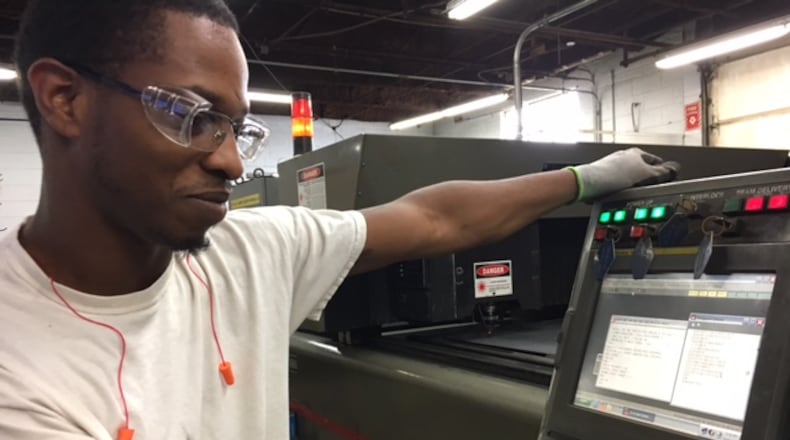The survey is available for $175 for DRMA members and $300 for non-members.
RELATED: Manufacturers desperate for workers of the future
“Paying people fairly is good for business,” DRMA President Angelia Erbaugh said Monday afternoon. “Underpay, and employees will eventually look for a better offer. Overpay, and the payroll budget and profitability will suffer.
“That’s why companies use market data, such as our wage and benefits survey, to research the value of their jobs,” she added. “The high level of interest in our survey is evidence that employers are continuing to compete for and retain talent, which speaks to their struggle to find enough candidates with the right skill set.”
RELATED: Fuyao employees reject UAW bid by wide margin
According to a preview of this year’s survey data, entry-level assemblers at manufacturing companies that participated in the survey are paid hourly wages ranging from $9.50 to $18. Customer service representatives are paid from $12.65 to $55.78. Foremen and supervisors are paid from $15 to $62.50.
Other hourly wages, according to a preview of data from companies participating in the survey:
Forklift operator: $11 to $20 an hour.
Visual inspector: $10 to $55.53.
Machine maintenance: $13 to $44.37.
Machine operator: $8.50 to $38.57.
Machine-lathe-CNC-master: $17.88 to $43.18.
Plant manager: $22.84 to $85.94.
Quality technician: $12.44 to $34.84.
Truck driver: From $12 to $22.80.
Other facts gleaned from this year’s survey: Seventy-four percent of companies offer earned vacation while 56 percent offer paid time off.
Eighty percent of companies participating in the survey conduct criminal background checks of prospective employees. A full 77 percent conduct some kind of urinalysis drug test.
RELATED: Budde family manufacturing in Dayton for nearly 100 years
Some of the challenges employers face when finding the right job applicants include (ranked from highest to lowest): lack of skills relevant to the job, lack of experience, lack of consistent work history, inability to pass pre-employment tests, applicant’s desire for higher pay, and aversion to off-shifts or overtime.
About the Author

